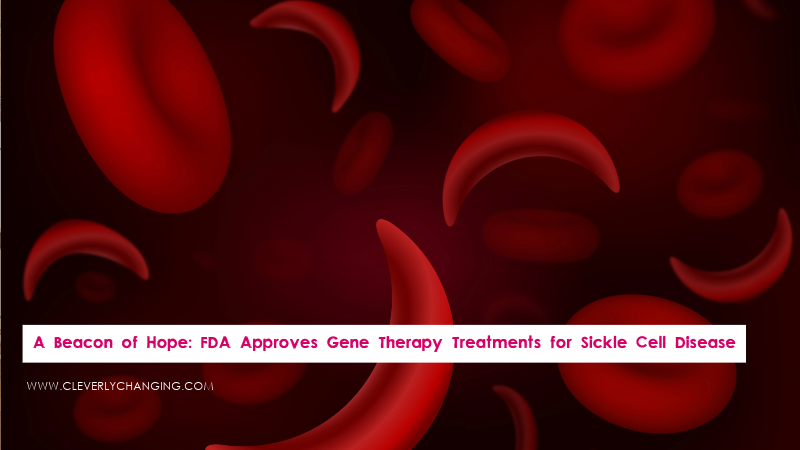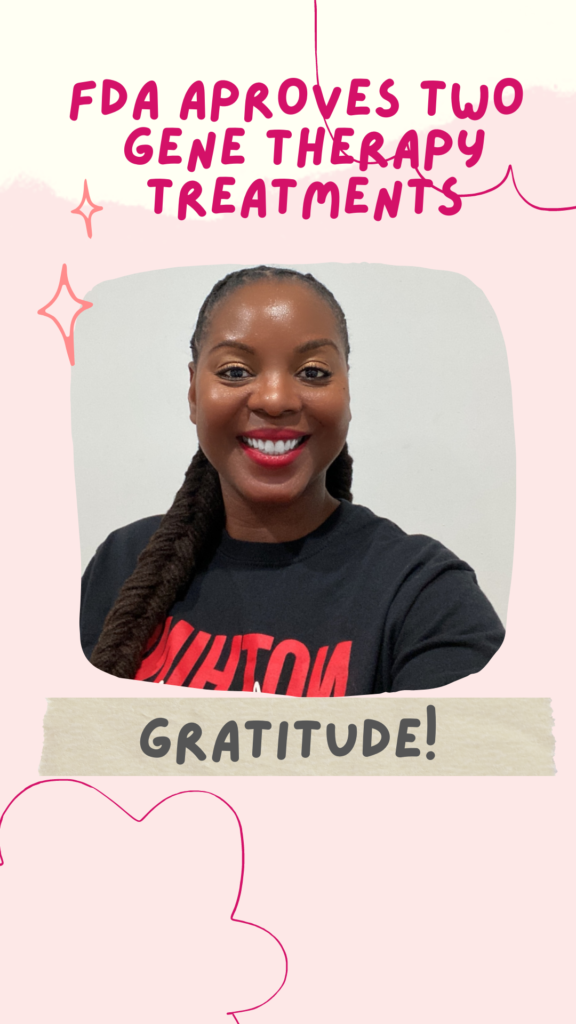Exciting news emerged from the Food and Drug Administration (FDA) headquarters on December 8, 2023. The FDA has approved two groundbreaking cell-based gene therapies (Casgevy and Lyfgenia) for treating sickle cell disease (SCD). This milestone achievement opens a new chapter in the battle against this debilitating disease, offering hope to countless individuals and their families who have been affected by SCD.
Thoughts of a Parent
As a mother of a child living with sickle cell disease, this announcement fills me with an indescribable sense of joy and relief. I have witnessed firsthand the challenges and pain that my daughter has endured since her diagnosis. The constant fear and overwhelming concern for her health have been a constant presence in my life. The approval of these potentially curative therapies signifies a momentous leap forward and kindles a spark of optimism within our hearts.
The Journey Towards Approval
Not long ago, I had the honor of writing a letter to the FDA for the hearing, aptly titled “Cellular, Tissue, and Gene Therapies Advisory Committee Hearing,” I had the opportunity to share my personal journey as a parent of a child with SCD. The emotional toll that this disease has taken on our lives cannot be understated. From vaso-occlusive crises lasting for days to the additional burden of managing type one diabetes, each hurdle has served as a reminder of the fragility of my child’s health.
A Brighter Future
In order to ensure her well-being, I made the difficult decision to homeschool her during her early years. The constant barrage of doctor appointments, overwhelming fatigue, and the desire to minimize exposure to germs made it the only viable option at the time. However, as she grew older, I wanted her to experience the joys of a traditional school setting. With trepidation, I enrolled her in a classroom environment, hoping that she could thrive among her peers.
A Glimmer of Hope
Unfortunately, the transition brought with it new challenges. Infections and pain became more frequent, affecting her academic progress and casting a shadow on the normalcy she deserved. Watching her struggle reminded me of the urgency to find a lasting solution. As she matures into adulthood, the worsening symptoms of SCD in adults loom largely in my mind. The longer vital organs are starved of oxygen, the higher the risk of complications. Gene therapy offers a glimmer of hope, a lifeline for us to grasp onto.
A Better Tomorrow
For my daughter and many others like her, gene therapy represents the best chance at a better tomorrow. It holds the potential to unlock a world of opportunities, milestones, and achievements that were once deemed unattainable. The hope of seeing my daughter attend prom, teaching her how to drive, sending her off to college, and witnessing her impact on the world fills my heart with anticipation and excitement.
Caregivers and families are rejoicing
Furthermore, this treatment approval is not just about my child; it is about ensuring equal opportunities for her twin sister as well. It is about giving her the same chances in life, unburdened by the limitations that SCD imposes. Currently, one the most promising treatments on the horizon appears to be Vertex and CRISPR Therapeutics’ gene editing-based exa-cel therapy, which offers another ray of hope for our family and countless others. The other approved treatment from bluebird bio will be a beacon of light to many families who need options for a promising treatment.
As we celebrate this groundbreaking advancement in the fight against SCD, we must also acknowledge the valid concerns accompanying any medical breakthrough. Extensive monitoring and research are imperative to ensure the long-term safety and efficacy of these gene therapies. Collaboration between medical professionals, researchers, and regulatory bodies is crucial to overcoming potential obstacles and delivering the best possible patient outcomes.
Today History Was Made
On this day, December 8, 2023, I join countless others in rejoicing at the FDA’s approval of two cell-based gene therapies for sickle cell disease. It signifies a remarkable turning point in the battle against this debilitating condition. For families like mine, it means the chance to witness our loved ones thrive, achieve their dreams, and lead fulfilling lives. Embracing hope and cautious optimism, we look towards a future where SCD holds no power over our loved ones.
Read more about this ground-breaking news in the Time article, “FDA Approves First CRISPR Treatment in U.S. by Alice Park“



